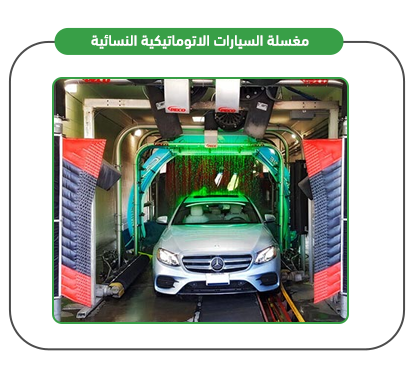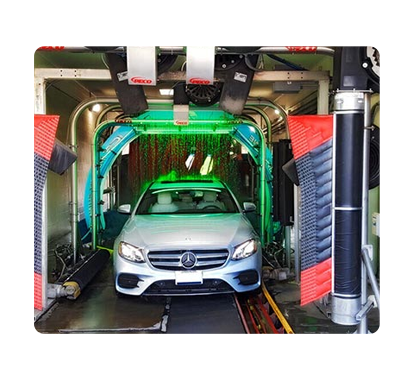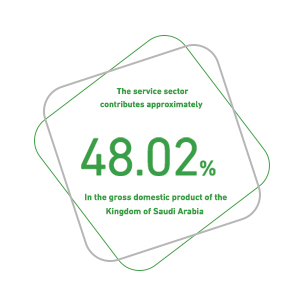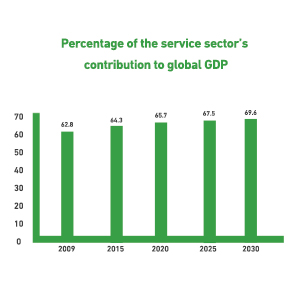The feasibility study for a women’s car wash is considered one of the profitable projects due to the increasing number of cars worldwide. With the entry of women into the field of driving, especially in the Kingdom of Saudi Arabia, it has become important to establish a women’s car wash that provides its services to women.

A feasibility study for a women’s car wash is considered one of the profitable projects due to the increasing number of cars worldwide and the entry of women into the field of driving, especially in Saudi Arabia. This makes it essential to establish a women’s car wash that offers services to women. Additionally, the automatic women’s car wash is less expensive than regular car washes, as it employs fewer workers but includes modern and advanced equipment that performs tasks such as cleaning the car’s interior, vacuuming dust, removing stains and unpleasant odors, and meticulously cleaning every part of the car while polishing and washing it from the outside, as well as changing oils and lubricating the vehicle. The cleaning processes rely on the best and least harmful cleaning materials to protect the car’s paint and the color and quality of the upholstery. A dedicated section for selling car accessories is also available.



The car wash relies on an automatic car washing system
Thorough cleaning of all areas and parts of the vehicle
High-precision cleaning and polishing of vehicles
Removal of tough stains, grease, and contaminants without using chemicals
Focus on cleaning to eliminate germs, microbes, and unpleasant odors
Quick response to customer requests and prompt dispatch to perform the required services
Vehicles are washed and polished by a highly skilled and efficient team
Preserving the car’s paintwork by avoiding the use of harmful cleaning and polishing materials
Executive summary
Study of project services/products
Market Size Analysis.

The Service Sector in the Gulf Cooperation Council (GCC) Countries
According to macroeconomic sector theory, the economy is divided into three main sectors:
The first sector involves the extraction of raw materials and includes mining companies, logging companies, oil exploration firms, agricultural industries, and fishing activities.
The second sector is focused on goods production and sales, such as the automotive industry, furniture manufacturing, clothing trade, and similar activities.
The third sector, known as the “services sector,” is responsible for providing and producing services, primarily relying on intangible elements such as entertainment, healthcare, transportation, hospitality, and restaurants.
The theory suggests that as countries become more developed, their economies increasingly rely on the third sector, in contrast to less-developed countries that depend largely on the first sector. (For example, the services sector accounts for approximately 85% of the U.S. economy.)
Saudi Arabia:
The service sector in Saudi Arabia is highly significant, encompassing: wholesale and retail trade, restaurants and hotels, transportation, storage, information and communications, financial services, insurance, real estate, business services, social, community, and personal services, as well as government services. Key indicators of the sector include:
The service sector contributes approximately 48.2% to Saudi Arabia’s GDP.
The “wholesale and retail trade, restaurants, and hotels” segment accounts for 10.8% of the GDP.
The “transportation, storage, information, and communications” segment contributes 6.6%.
The “financial services, insurance, real estate, and business services” segment represents 6.4% of the GDP.
The “community, social, and personal services” segment contributes 2.5%.
Government services contribute 21.9% to the GDP.
Saudi Arabia issued 100,944 new commercial licenses last year, raising the total number to 348,173 licenses.
Wholesale and retail trade and vehicle/motorcycle repair accounted for the largest share with 48,242 licenses.
Accommodation and food services followed with 16,531 licenses.
Construction ranked third with 11,521 licenses.
Qatar:
The wholesale and retail trade sector is valued at approximately 50,083 million Qatari Riyals.
There are 11,139 establishments in the wholesale and retail sector, employing 213,954 workers.
Employee compensation in the wholesale and retail sector reached 11,288,877 thousand Qatari Riyals.
The hotel and restaurant sector consists of 2,396 establishments with 78,194 employees, and total compensation of 2,947,431 thousand Qatari Riyals.
Mobile phone subscribers (standard subscriptions) reached 976,015, and prepaid service subscribers reached 2,941,556.
Newly paved roads in Qatar last year covered 2,224 kilometers.
242,923 new driving licenses were issued.
Compensation in the transport and communications sector totaled 24,338,223 thousand Qatari Riyals.
715,897 insurance policies were issued last year.
There are 4,973 business services establishments employing 215,285 workers, with compensation exceeding 15,347,819 thousand Qatari Riyals.
80,569 individuals work in the social and personal services sector within the private sector, with total compensation estimated at 6,127,645 thousand Qatari Riyals.
Kuwait:
Wholesale and retail trade contributes approximately 1,644.3 million Kuwaiti Dinars to the GDP.
Restaurants and hotels contribute around 418.6 million Kuwaiti Dinars to the GDP.
The transport, storage, and communications sector contributes approximately 2,554.5 million Kuwaiti Dinars.
The total area of paved roads in Kuwait is 91,340,068 square meters.
United Arab Emirates (UAE):
Wholesale and retail trade and motor vehicle repair account for 12.3% of the GDP (172,288 million Dirhams).
The transportation and storage sector contributes 5.9% (82,461 million Dirhams).
Accommodation and food services contribute 2.3% (32,357 million Dirhams).
The information and communications sector contributes 2.9% (41,347 million Dirhams).
Financial activities and insurance contribute 9.6% (134,773 million Dirhams).
7,584,607 insurance policies were issued by the end of last year.
Wholesale and retail trade accounts for 13% of the total workforce in the UAE.
The transportation and storage sector employs 6.2% of the total workforce, while accommodation and food services employ around 5%.
Oman:
Oman’s GDP stands at 29.3 billion Omani Riyals.
Wholesale and retail trade contribute 7% to the GDP (2,064.7 million Omani Riyals).
The restaurant and hotel sector contributes 1.1% (308.6 million Omani Riyals).
Transport, storage, and communications contribute approximately 5.9% (1,721.2 million Omani Riyals).
Global Service Sector:
The service sector is the largest contributor to global GDP, accounting for more than three-fifths of total output. Unlike manufacturing industries that produce tangible goods like automobiles and furniture, the service sector revolves around intangible services such as banking, healthcare, transportation, hospitality, and entertainment.
The global service sector was valued at approximately USD 10,814.49 billion in 2020.
It rose to about USD 11,780.11 billion in 2021, achieving a compound annual growth rate (CAGR) of 8.9%.
After recovering from the COVID-19 pandemic, experts project that the sector’s value will reach USD 15,683.84 billion by 2025, with an expected CAGR of 7% over the coming years.
